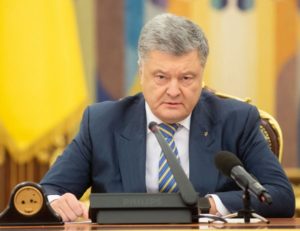
Credit: Wikimedia Commons
Days before the hotly contested Ukrainian presidential election on March 31, incumbent Petro Poroshenko’s party faces credible allegations of voter bribery, notes Mikheil Saakashvili, president of Georgia from 2004 until 2013. It’s not hard to guess what will happen next. The oligarchic clique will steal the election, and in response, international observers will accuse local authorities of vote-rigging. But instead of addressing the symptoms of democratic backsliding, it’s time to treat the root cause: informal power, he writes for the Washington Post:
Moldova offers a textbook example. Oil and banking tycoon Vladimir Plahotniuc bankrolls the country’s second-largest political force and has forged alliances with other parties to consolidate power. Although Plahotniuc exerts total control over parliament, law enforcement and the courts, he has no interest in running for office. His nickname in Moldova is “the puppeteer,” and the elections last month only strengthened his hold on the country.
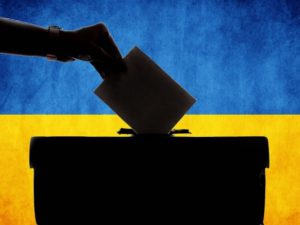
Tech 4 Dem
The consequences of any misuse of or overreaction to real national security threats could be dire, adds April Gordon, Program Associate, Eurasia at Freedom House. Especially as Ukraine and Moldova undertake delicate political transitions this spring, the resilience of their democracies will depend largely on whether safeguards for free expression and independent media are preserved and respected.
Lviv-based analyst Oleg Gryniv said Poroshenko will probably carry a majority in the western areas like Galicia, which contains Lviv, citing the example of Ukraine’s first post-Soviet President Leonid Kravchuk, Reuters adds.
“When he traveled through the eastern regions, they asked him about the price of socks, whether gas prices would be lowered,” he said. “And when he arrived in Galicia, there was only one question – whether the state would be kept intact.”
Ukraine is rated Partly Free in Freedom in the World 2019 and Partly Free in Freedom on the Net 2018. Moldova is rated Partly Free in Freedom in the World 2019.
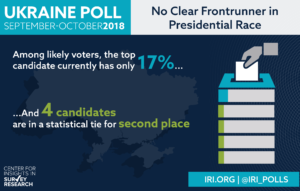 The March 2019 presidential election is a pivotal event in Ukraine’s history. Outside attempts to influence the elections have been documented, particularly by the Kremlin, which has employed a full-range of hybrid tactics in Ukraine in an effort to destabilize the country, the Atlantic Council notes:
The March 2019 presidential election is a pivotal event in Ukraine’s history. Outside attempts to influence the elections have been documented, particularly by the Kremlin, which has employed a full-range of hybrid tactics in Ukraine in an effort to destabilize the country, the Atlantic Council notes:
Recognizing the high stakes, the Atlantic Council, the Victor Pinchuk Foundation, and the Transatlantic Commission on Election Integrity have established the Ukrainian Election Task Force. Working with other Ukrainian institutions and analysts–StopFake, Razumkov Centre, and Detektor Media–the Task Force is a rapid-response team with the ability to monitor, evaluate, and disclose the full range of foreign subversive activities in Ukraine and to propose suitable responses.
By exposing foreign interference as it occurs leading up to the run-off elections on April 21, 2019, the Atlantic Council, the Victor Pinchuk Foundation, and the Transatlantic Commission on Election Integrity hope to provide Ukrainians with the necessary tools to check outside efforts to influence their vote, to establish the facts, and to cast their ballots for a better future for Ukraine.
Follow @ACEurasia for updates and engage using #FutureUkraine
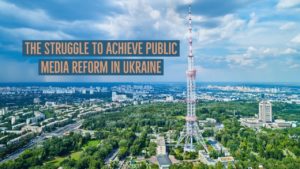 Ukraine’s Presidential Election: April 1, 2019 – 12:00 pm
Ukraine’s Presidential Election: April 1, 2019 – 12:00 pm
1030 15th St. NW
Washington, DC
Register
Agenda
Panel Discussion:
Mr. David J. Kramer, Team Lead; Senior Fellow Vaclav Havel Program for Human Rights and Diplomacy, Steven J. Green School of International and Public Affairs, Ukrainian Election Task Force; Florida International University
Ms. Laura Galante, Cyber Lead; Senior Fellow, Eurasia Center, Ukrainian Election Task Force; Atlantic Council
Mr. Jakub Kalenský, Disinformation Lead; Senior Fellow, Eurasia Center, Ukrainian Election Task Force; Atlantic Council
Mr. Oleksiy Melnyk, Kinetic Lead; Co-Director, Foreign Relations and International Security Programs, Ukrainian Election Task Force, Razumkov Centre
Moderated by:
Ms. Geysha Gonzalez, Deputy Director, Eurasia Center, Atlantic Council
Panel Discussion:
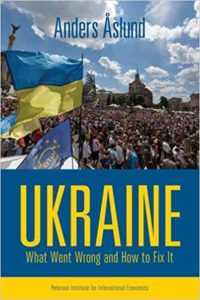 Dr. Anders Aslund, Senior Fellow, Eurasia Center, Atlantic Council
Dr. Anders Aslund, Senior Fellow, Eurasia Center, Atlantic Council
Mr. Carl Gershman, President, National Endowment for Democracy
Ms. Nataliya Bugayova, Director of Development and Research Fellow, Russia Team, Institute for the Study of War
Ambassador John Herbst, Director, Eurasia Center, Atlantic Council
Moderated by:
Ms. Melinda Haring, Editor for UkraineAlert, Eurasia Center, Atlantic Council







